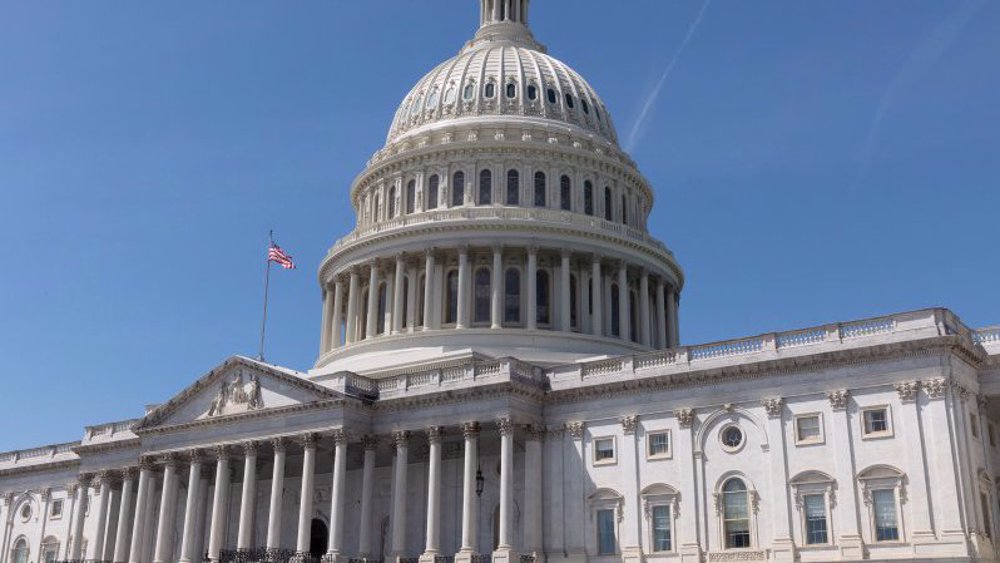AhlulBayt News Agency (ABNA): Republicans in Congress have introduced legislation containing the “largest package” of sanctions against Iran to prevent the Joe Biden administration from potentially removing the sanctions that Washington reimposed against Tehran when it left a landmark nuclear agreement in 2018.
The legislation, dubbed the Maximum Pressure Act and unveiled on Wednesday, has been described by the Congressional GOP as the largest package of Iran sanctions in history, the Washington free Beacon reported.
The bill, spearheaded by the Republican Study Committee, seeks to force US President Joe Biden’s administration to submit any revamped nuclear deal with Iran to Congress for review before it is approved.
Besides expanding sanctions on Iran’s ballistic missile program, the bill would mandate that Congress approve any agreement the Biden administration might agree to during talks in Austrian capital, Vienna. It would also limit the president's ability to unilaterally ease sanctions via executive order.
It would also codify into law Former Secretary of State Mike Pompeo’s 12 tough conditions for any new deal with Iran that were presented while he was in office, and included a total halt to Iran's nuclear program.
The bill is, however, a largely symbolic move as it stands little chance of passing the Democrat-controlled Congress. It only seeks to send a message that Republicans are united in opposition to removal of sanctions that would provide Iran with potentially billions in cash assets.
Pompeo, who led ex-president Donald Trump’s so-called maximum pressure campaign against Iran, and Rep. Jim Banks, a member of the House Armed Services Committee and the Republican Study Committee's chairman, said the legislation seeks to send a message to the White House and Iran that Congress will not abide by any deal that is not first brought before it for a vote.
Banks said in a statement that if President Biden bypasses Congress and rejoins the Iran deal, “our adversaries should know that conservatives in Congress will continue to fight to support President Trump's successful maximum pressure campaign and work to pass this legislation which would reimpose all sanctions” until Iran shutters its nuclear program and stops supporting what he called terrorist groups across the Middle East.
The bill comes as Iran and the remaining parties to the JCPOA -- the UK, France, Russia and China plus Germany -- along with the EU representative are to resume another round of discussions in Vienna next week on the fate of the UN-endorsed agreement, after consultations in their respective capitals.
The JCPOA was abandoned by Trump in 2018, who described the accord as the worst ever and called for a better new deal.
The ex-hawkish president also reinstated the sanctions that had been lifted under the JCPOA.
The US delegation was in Vienna for talks but did not attend the negotiations directly as it is not a signatory to the deal. American diplomats led by US special envoy for Iran Robert Malley, however, held discussions with the other signatories to the JCPOA – except for Iran – in Vienna on the sidelines of the meetings of the Joint Commission, which is responsible for overseeing the implementation of the agreement.
Biden criticized his predecessor for leaving the deal and expressed a willingness to rejoin it. His administration, however, says Iran should suspends its nuclear measures before Washington returns to compliance.
Iran has rejected any renegotiation of the JCPOA, arguing it is a done deal. Tehran also says the US was the party to leave the agreement and therefore it should unconditionally remove all its sanctions on the country in a verifiable manner.
Iran’s administration has also rejected the possibility of giving concessions beyond those offered within the framework of the 2015 nuclear deal.
......................................
End/ 257
source : PressTV
Wednesday
21 April 2021
8:13:09 PM
1133735

Republicans in Congress have introduced legislation containing the “largest package” of sanctions against Iran to prevent the Joe Biden administration from potentially removing the sanctions that Washington reimposed against Tehran when it left a landmark nuclear agreement in 2018.
